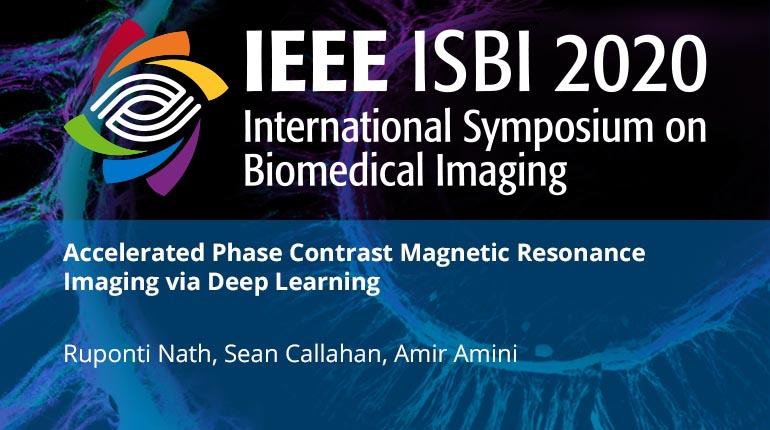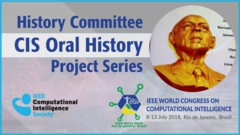
Already purchased this program?
Login to View
This video program is a part of the Premium package:
Accelerated Phase Contrast Magnetic Resonance Imaging via Deep Learning
- IEEE MemberUS $11.00
- Society MemberUS $0.00
- IEEE Student MemberUS $11.00
- Non-IEEE MemberUS $15.00
Accelerated Phase Contrast Magnetic Resonance Imaging via Deep Learning
In this paper, we propose a framework for accelerated reconstruction of 2D phase contrast magnetic resonance images from undersampled k-space domain by using deep learning methods. Undersampling in k-space violates Nyquist Sampling and creates artifacts in the image domain. In the proposed method, we consider the reconstruction problem as a de-aliasing problem in complex spatial domain. To test the proposed method, from fully sampled k-space data undersampling in k-space was performed in the phase-encode direction based on a probability density function which ensures maximum rate of sampling in low frequency regions. For the deep convolutional neural network (CNN) we chose the U-net architecture. The proposed CNN was trained and tested on 4D flow MRI data in 14 subjects with aortic stenosis. The reconstructed complex two channel image showed that the U-net is able to unaliase the undersampled flow images with resulting magnitude and phase difference images showing good agreement with the fully sampled magnitude and phase images. We show that the proposed method outperforms 2D compressed sensing approach of spatial total variation regularization method. Flow waveforms derived from reconstructed images closely follow flow waveforms derived from the original data. Moreover, the method is computationally fast. Each 2D magnitude and phase image is reconstructed within a second using a single GPU.
In this paper, we propose a framework for accelerated reconstruction of 2D phase contrast magnetic resonance images from undersampled k-space domain by using deep learning methods. Undersampling in k-space violates Nyquist Sampling and creates artifacts in the image domain. In the proposed method, we consider the reconstruction problem as a de-aliasing problem in complex spatial domain. To test the proposed method, from fully sampled k-space data undersampling in k-space was performed in the phase-encode direction based on a probability density function which ensures maximum rate of sampling in low frequency regions. For the deep convolutional neural network (CNN) we chose the U-net architecture. The proposed CNN was trained and tested on 4D flow MRI data in 14 subjects with aortic stenosis. The reconstructed complex two channel image showed that the U-net is able to unaliase the undersampled flow images with resulting magnitude and phase difference images showing good agreement with the fully sampled magnitude and phase images. We show that the proposed method outperforms 2D compressed sensing approach of spatial total variation regularization method. Flow waveforms derived from reconstructed images closely follow flow waveforms derived from the original data. Moreover, the method is computationally fast. Each 2D magnitude and phase image is reconstructed within a second using a single GPU.
 Cart
Cart Create Account
Create Account Sign In
Sign In





